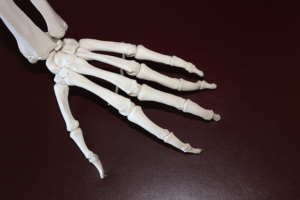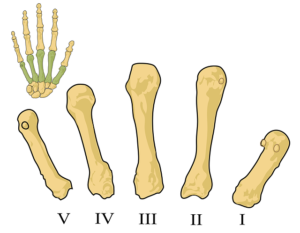Biologic Disappoints for Arthritis Achilles’ Inflammation | MedPage Today – MedPage Today
Secukinumab (Cosentyx) failed to resolve Achilles tendon inflammation in spondyloarthritis patients in the ACHILLES trial.
Enthesitis resolved in the affected foot by week 24 in 42.2% of patients…….

Secukinumab (Cosentyx) failed to resolve Achilles tendon inflammation in spondyloarthritis patients in the ACHILLES trial.
Enthesitis resolved in the affected foot by week 24 in 42.2% of patients given the interleukin (IL)-17 monoclonal antibody compared with 31.4% among placebo-treated controls, a difference which did not reach statistical significance (OR 1.63, 95% CI 0.87-3.08).
However, there were “clinically meaningful improvements” in patient-reported outcomes, including heel-enthesopathy activity and global assessment of disease activity, Frank Behrens, MD, of Goethe-University in Frankfurt, Germany, and colleagues reported in Rheumatology.
“It is worth noting that ACHILLES applied a high-hurdle primary endpoint, assessing the complete resolution of Achilles tendon enthesitis by using a single tender point out of the 6-point LEI [Leeds Enthesitis Index],” the authors pointed out. “This was a binary assessment with no gradual improvements; a complete resolution had to be achieved.”
However, there was a discrepancy between the clinical and imaging assessment of heel enthesitis — with all participants having clinical enthesitis and locally-read positive MRI, but only 56% MRI positive for tendinitis or bone marrow edema on central reading.
“Some of the clinical diagnoses might have therefore been driven by other pain-related features not caused by enthesitis, as the entheseal sites may also serve as tender points due to mechanical stress or even fibromyalgia,” Behrens’s group wrote. “MRI analysis revealed that clinical and imaging assessments for the diagnosis of heel enthesitis remain a challenge for the treating rheumatologist.”
Post-hoc analysis of MRI with central re-reading by the Achilles tendon-specific Heel Enthesitis MRI Scoring System (HEMRIS) showed that 76% of the study population had non-zero total entheseal inflammation scores and 64% had non-zero total structural damage scores at screening.
The ACHILLES trial included 204 psoriatic arthritis (PsA) or axial spondyloarthritis (axSpA) patients with clinical heel enthesitis that began within the month prior to enrollment, as well as MRI signs of tendinitis or bone marrow edema where the Achilles tendon inserts into the calcaneus or plantar aponeurosis. Standard treatment with the highest recommended dose of non-steroidal anti-inflammatory drugs or tumor necrosis factor (TNF) inhibitors had to have been insufficient.
Participants were randomly assigned to 24 weeks of double-blind treatment with subcutaneous secukinumab or matching placebo, after which placebo patients were switched to secukinumab for another 24 weeks. Secukinumab was dosed at 300 mg for PsA patients with moderate-to-severe skin involvement or who had previously received TNF inhibitors, while the dose was 150 mg for all axSpA patients and for PsA patients with no worse than mild psoriasis with no TNF inhibitor exposure.
While 9.3% of the study population had prior exposure to TNF inhibitors, their use didn’t appear to factor into the outcomes.
The subgroup of patients with a BMI under 30 had greater resolution of Achilles tendon enthesitis with secukinumab (49.2% vs 24.6% on placebo), suggesting that obesity might have “compromised” the benefit of …….
Source: https://www.medpagetoday.com/rheumatology/arthritis/95594







